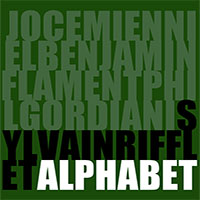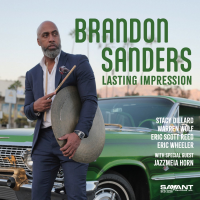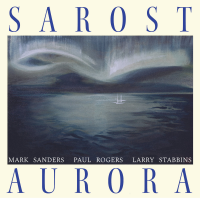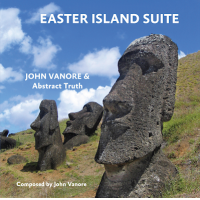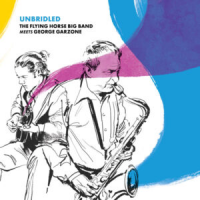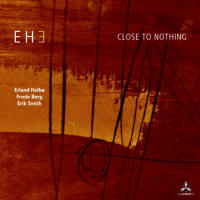Home » Jazz Articles » Extended Analysis » Loose Tubes: Loose Tubes: Sad Afrika
Loose Tubes: Loose Tubes: Sad Afrika
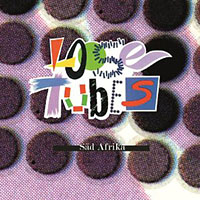 Loose Tubes
Loose TubesSäd Afrika
Lost Marble
2012
With virtually none of its discography available on CD—and the only one, Open Letter (EG, 1988), shamefully out-of-print—it's no mean accomplishment that Britain's Loose Tubes has remained, if not exactly legendary, then at least firmly etched into the minds of those aware of them. Of course, any group that was the breeding ground for a number of now-significant British jazzsters—not limited to, but including keyboardist Django Bates, saxophonists Iain Ballamy, and Mark Lockheart, guitarist John Parricelli and drummer Martin France—deserves any due received. But with the release of Dancing on Frith Street (Lost Marble, 2010)—a set of previously unreleased performances by the group's final incarnation, from its Ronnie Scott club's swan song in London, in September, 1990—not only were fans who'd missed the boat on the CD or worn through their vinyl copies of Open Letter or the previous, self-produced Loose Tubes (1985) and Delightful Precipice (1986), able to happily reacquaint themselves with this boundary-busting, freewheeling big band, so, too, were those who'd heard plenty about Loose Tubes, but had never been afforded the opportunity to actually hear the group.
Given Dancing on Frith Street's vinyl-styled length (just shy of 47 minutes), there were hopes that more from this three-night run would ultimately make it into the world. There's good news and there's good news: not only does Säd Afrika add another nearly 48 minutes to the amount of music easily available, but de facto Loose Tubes keeper-of-the-archives Bates (never leader; Loose Tubes was, indeed, an egalitarian group, all the more remarkable for its size) suggested, earlier this year at the 2012 Trondheim Jazz Festival, that there could well be more to come.
In the meantime, between Frith Street and Säd Afrika, a good chunk of material from its studio releases can be heard in the live setting that was clearly the best way to experience Loose Tubes, but there's some precious new material to be found as well, though the preponderance of Säd Afrika comes from Delightful Precipice (four tracks) and Open Letter (two). Only flautist Eddie Parker's "Exeter, King of Cities" is new, and it's a typical Loose Tubes composition, meaning there's very little typical about it. A complex rhythmic underpinning from bassist Steve Watts and drummer Martin France supports a bubbly contrapuntal mesh of interlocking horns, leading into an accordion-inflected synth solo from Bates—at this time, along with Ballamy, also gaining exposure as a charter member of drummer Bill Bruford's Earthworks quartet—that's as bright and filled with buoyant humor as the man himself.
Elsewhere, the title track is a statement about the apartheid regime of South Africa which was still four years from falling in 1990, though there's nothing sad about Bates' set-opener. Instead, not unlike Norway's Farmers Market and its remarkable ability to seamlessly cross-pollinate genres and cultures on albums like Slav to the Rhythm (Division, 2012), Bates covers remarkable territory in just under six minutes, always somehow possessed of a South African undercurrent. An almost cacophonous fanfare of an intro—almost, because the tumultuous combination of France and percussionist Thebe Lipere keeps it completely off-balance—leads to a gorgeous choral passage, sung by the entire group, turning to a horn-driven interlude that leans more to contemporary classicism...and that's just the first sixty seconds.
That Loose Tubes live is a greater experience than Loose Tubes in the studio is not because the group stretches the music out; surprisingly, given there are potentially 23 fine soloists to draw on for any tune, only Open Letter's "Sweet William" significantly exceeds the length of its studio counterpart—and, even then, only by a couple more minutes. Instead, with dense, knotty and downright idiosyncratic charts that rock, swing, elegantly waltz and much, much more—all the while sounding effortlessly playful—it's clear that solo space is kept well within the music's defined contexts.
Still, interpretive freedom means plenty of boisterous interplay and fun being had throughout; even the between-song patter suggests a group having exactly as much fun as they should be entitled. At the conclusion of trumpeter Chris Batchelor's " Mo Mhúirnín Bán " and leading into "Delightful Precipice," Bates says: "Lovely, lovely. Featured possibly the happiest man in show business, [saxophonist] Steve Buckley." After an expected round of applause, Bates continues, "Ah yes, yes, lovely, lovely, lovely...well, anybody here take acid? C'mon, own up. Well this one's just for you; this is 'Delightful Precipice," standing on the edge of one all the time..[clapping his hands]...oh, boy," and, with barely a second to spare, the group hits with a knotty series of lines that spread outwards, only to coalesce into another six minutes of epic compositional proportion that also include Loose Tubes at its most vivaciously funky.
Like its immediate predecessor, Säd Afrika is programmed, in length, for vinyl, even if it's not actually being offered in that format. A confluence of everything from Duke Ellington to Gil Evans, from Ennio Morricone to Carl Stalling, and from Carla Bley to Hermeto Pascoal, Loose Tubes mashed up, chewed up and spat out its influences with what might seem to be reckless abandon, except that the rigorous specificity of its charts—even with the space provided for interpretation and improvisation, suggested otherwise. It spawned careers for many and proved influential to far more, amongst the artists seemingly touched by the group, the Trondheim Jazz Orchestra, whose sense of humor is unmistakably Norwegian, but whose "nothing is forbidden" maxim has clear roots in Loose Tubes' aesthetic. If Bates can finish up this archival release from Loose Tubes' stunning last date at Ronnie Scott's with a third CD, it will make the unavailability of its studio recordings, if not completely acceptable, then at least a little more tolerable.
Tracks: Säd Afrika; Exeter, King of Cities; Sunny; Mo Mhúirnín Bán; Delightful Precipice; Sosbun Brakk; Sweet Williams.
Personnel: Eddie Parker: flutes, voice (1, 5); Dai Pritchard: clarinets, voice (1, 5); Steve Buckley: saxophone, voice (1, 5); Iain Ballamy: saxophone, voice (1, 5); Mark Lockheart: saxophone, voice (1, 5); Julian Nicholas: saxophone, voice (1, 5); Kenn Stubbs: saxophone, voice (1, 5); Lance Kelly: trumpet, voice (1, 5); Chris Batchelor: trumpet, voice (1, 5); Ted Emmett: trumpet, voice (1, 5); Paul Edmonds: trumpet, voice (1, 5); Noel Langley: trumpet, voice (1, 5); John Harborne: trombone, voice (1, 5); Steve Day: trombone, voice (1, 5); Paul Taylor: trombone, voice (1, 5); Richard Pywell: trombone, voice (1, 5); Ashley Slater: bass trombone, voice (1, 5); Dave Powell: tuba, voice (1, 5); Django Bates: keyboards, voice (1, 5); John Parricelli: guitar, voice (1, 5); Steve Watts: bass, voice (1, 5); Martin France: drums, voice (1, 5); Thebe Lipere: percussion, voice (1, 5).
Track Listing
Säd Afrika; Exeter, King of Cities; Sunny; Mo Mhúirnín Bán; Delightful Precipice; Sosbun Brakk; Sweet Williams.
Personnel
Eddie Parker: flutes, voice (1, 5); Dai Pritchard: clarinets, voice (1, 5); Steve Buckley: saxophone, voice (1, 5); Iain Ballamy: saxophone, voice (1, 5); Mark Lockheart: saxophone, voice (1, 5); Julian Nicholas: saxophone, voice (1, 5); Kenn Stubbs: saxophone, voice (1, 5); Lance Kelly: trumpet, voice (1, 5); Chris Batchelor: trumpet, voice (1, 5); Ted Emmett: trumpet, voice (1, 5); Paul Edmonds: trumpet, voice (1, 5); Noel Langley: trumpet, voice (1, 5); John Harborne: trombone, voice (1, 5); Steve Day: trombone, voice (1, 5); Paul Taylor: trombone, voice (1, 5); Richard Pywell: trombone, voice (1, 5); Ashley Slater: bass trombone, voice (1, 5); Dave Powell: tuba, voice (1, 5); Django Bates: keyboards, voice (1, 5); John Parricelli: guitar, voice (1, 5); Steve Watts: bass, voice (1, 5); Martin France: drums, voice (1, 5); Thebe Lipere: percussion, voice (1, 5).
Album information
Title: Loose Tubes: Sad Afrika | Year Released: 2012 | Record Label: Lost Marble
Tags
PREVIOUS / NEXT
Support All About Jazz
 All About Jazz has been a pillar of jazz since 1995, championing it as an art form and, more importantly, supporting the musicians who make it. Our enduring commitment has made "AAJ" one of the most culturally important websites of its kind, read by hundreds of thousands of fans, musicians and industry figures every month.
All About Jazz has been a pillar of jazz since 1995, championing it as an art form and, more importantly, supporting the musicians who make it. Our enduring commitment has made "AAJ" one of the most culturally important websites of its kind, read by hundreds of thousands of fans, musicians and industry figures every month.



